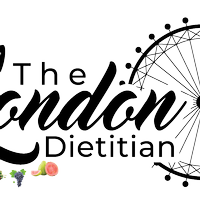The alkaline diet has been making the rounds on social media, having first come into prominence in 2002 and subsequently attracting many celebrities. Also known as the acid-alkaline diet or alkaline ash diet, its proponents claim that by influencing the pH of our body via diet, we can maintain health and fight/cure diseases such as cancer. They claim that since the pH of our blood is slightly alkaline, we should be eating food that after digestion, leave an alkaline ‘ash’ behind, thus influencing the pH of our blood. Foods such as meat, dairy, eggs, fish, alcohol and grains are said to leave an acidic ‘ash’ as metabolic waste, thus making you more vulnerable to illness and disease, whereas fruit, vegetables, legumes and nuts leave an alkaline ‘ash’ which is considered protective.
Before we go on, let’s have a look at what ‘pH’ even means. Simply put, pH is a measurement of how alkaline or acidic something is and values range from 0-14. Anything from 0-6.9 would be considered acidic, 7.1-14 would be considered alkaline and a value of 7 is neutral. The pH of our body varies considerably within our body. For example, our stomach is full of hydrochloric acid which is needed to break down our food and so has a pH of 2-3.5. Contrastingly, our blood has a pH of 7.36-7.44, making it slightly alkaline.
The hypothesis relating to cancer is that cancerous cells produce an acidic local environment in the surrounding tissues which are out of sync with our body’s natural blood pH of 7.4. Thus, a diet that is high in alkaline foods can provide a microenvironment which is hostile to cancer cells which kills them off. Sounds like something that makes sense, right? However, our bodies do not work in such simple ways.
Our body’s pH is tightly controlled by multiple mechanisms. When this goes wrong you can end up seriously unwell in hospital, often needing life support. When the alkaline diet proponents talk about foods having either an alkaline or acidic effect, they are talking about the breakdown of foods which produce compounds that are indeed either acidic or alkaline. However, our bodies compensate for these pH changes instantly via our kidneys and respiratory systems. Scientists have also shown that whilst tumours do proliferate in an acidic environment, this acidity is created by the tumours themselves, and not that the environment has led to the growth of the tumours. Furthermore, proponents on this diet conveniently miss out the fact that scientists have successfully conducted experiments whereby they have grown cancer cells in alkaline conditions. In addition, cancers that develop initially in the blood are not hindered by the fact that our blood is naturally alkaline. Therefore, when people test their urine pH to ‘prove’ that the diet is changing their body’s pH, all they are actually ‘proving’ is that the body has managed to maintain a stable pH by excreting the small amounts of extra acid or alkaline without impacting upon our blood’s pH.
So, what is the bottom line? Well, the alkaline diet can be quite healthy as it promotes a high intake of vegetables, fruit and plant-based products whilst encouraging the restriction of processed junk food. However, as with any dietary restriction during cancer, it is not recommended to follow such a restrictive diet as cutting out whole food groups can lead to a high risk of becoming malnourished; something you definitely want to avoid when having cancer and undergoing any treatment. So, what do I advise in this case? As always, the boring advice is honestly the best…a healthy, well-balanced diet with a range of foods from all the food groups. If you do want some individualised advice or feel that you are struggling, do reach out and see how I may be able to help!

.jpg)